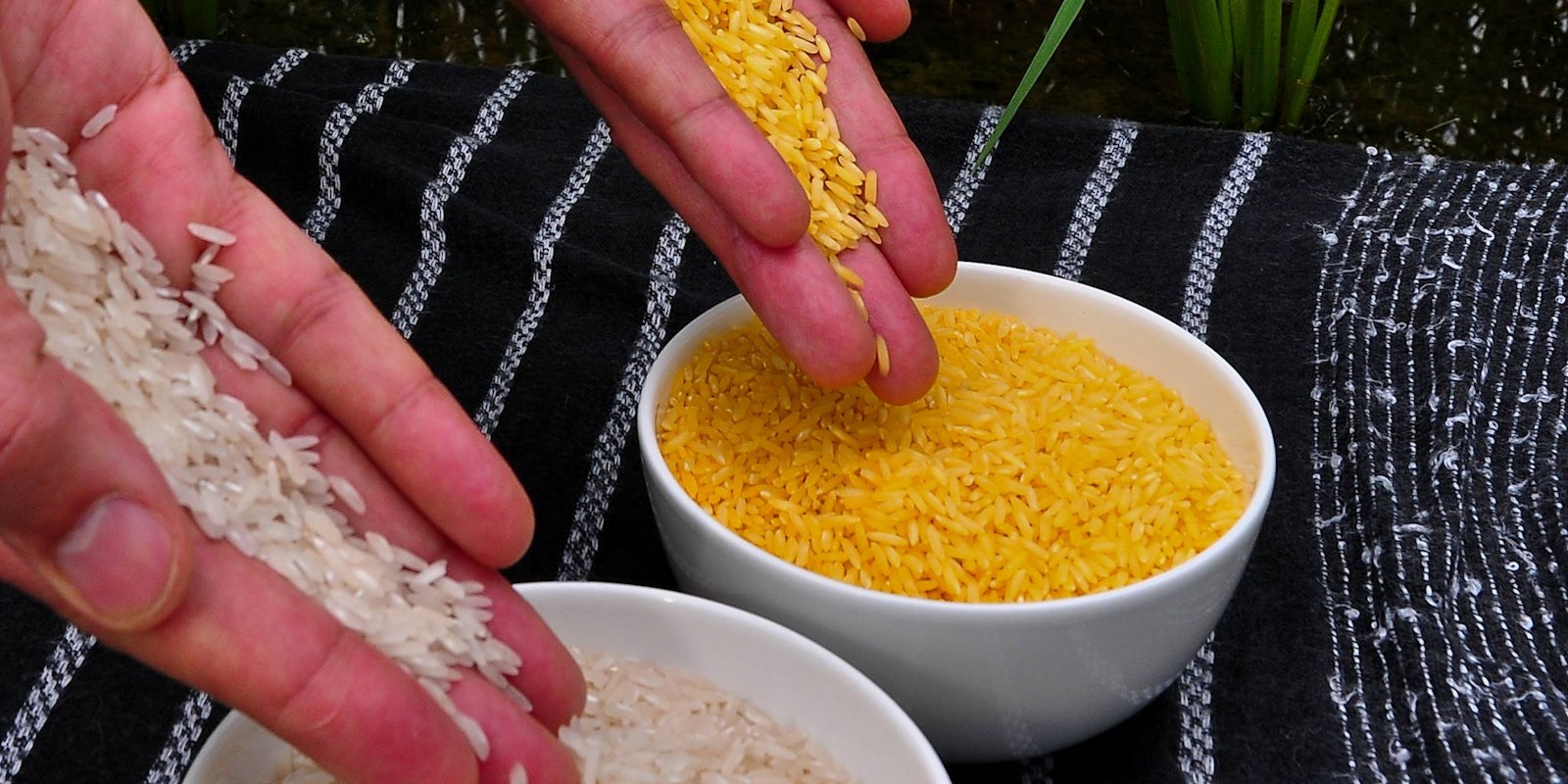Greenpeace is a wonderful organization that pushes for many important policy changes supported by science, except when it comes to genetically modified organisms (GMOs) in food. But a letter signed by more than 100 Nobel laureates is calling upon it to back off.
Specifically, the letter asked Greenpeace and other anti-GMO activists to just re-evaluate their stance on Golden Rice—a genetically modified strain that carries beta carotene, a nutrient that gets broken down to vitamin A in the body. And in many developing nations, vitamin A deficiency is a huge public health risk responsible for thousands of deaths and cases of permanent blindness every year.
Golden Rice has the potential to put an end to that because it could replace white rice as a staple food item for people in nations like the Philippines—where Greenpeace has been working to block the introduction of the item.
In a statement to the Washington Post, Greenpeace said:
“The only guaranteed solution to fix malnutrition is a diverse healthy diet. Providing people with real food based on ecological agriculture not only addresses malnutrition, but is also a scaleable solution to adapt to climate change. We’ve documented communities across the Philippines that continue to express concerns about using GE golden rice as a solution. It is irresponsible to impose GE golden rice as a quick remedy to people on the front lines and who do not welcome it, particularly when there are safe and effective options already available.
“Greenpeace Philippines is already working with NGO partners and farmers in the Philippines to boost climate resiliency (4). There’s a real chance here for governments and the philanthropic community to support these endeavours by investing in climate-resilient ecological agriculture and empowering farmers to access a balanced and nutritious diet, rather than pouring money down the drain for GE ‘Golden’ rice.”
But the 107 Nobel laureates who signed the letter assert that Greenpeace’s position doesn’t agree with the science.
“We urge Greenpeace and its supporters to re-examine the experience of farmers and consumers worldwide with crops and foods improved through biotechnology, recognize the findings of authoritative scientific bodies and regulatory agencies, and abandon their campaign against “GMOs” in general and Golden Rice in particular.
“Scientific and regulatory agencies around the world have repeatedly and consistently found crops and foods improved through biotechnology to be as safe as, if not safer than those derived from any other method of production. There has never been a single confirmed case of a negative health outcome for humans or animals from their consumption. Their environmental impacts have been shown repeatedly to be less damaging to the environment, and a boon to global biodiversity.”
Vox noted that Greenpeace isn’t Golden Rice’s only obstacle. The strain hasn’t performed as well as researchers would like in field tests.
But it’s hugely important for researchers to have the freedom to develop GMO foods like Golden Rice, the laureates wrote, because the world population is continuing to soar. But current agricultural practices aren’t going to be enough to feed everyone. GMOs, which can be nutritionally dense and resistant to pests and drastic weather patterns, can be one of the ways we get over that.
H/T: Washington Post, Vox


